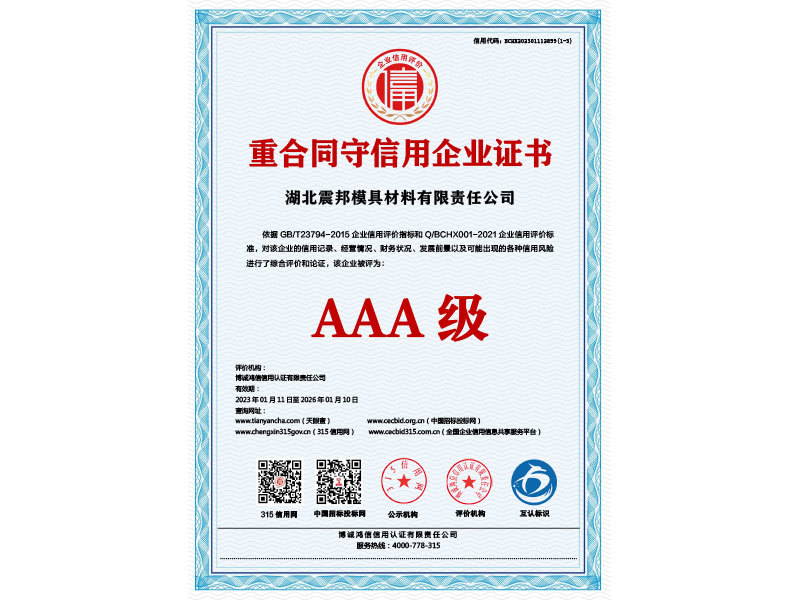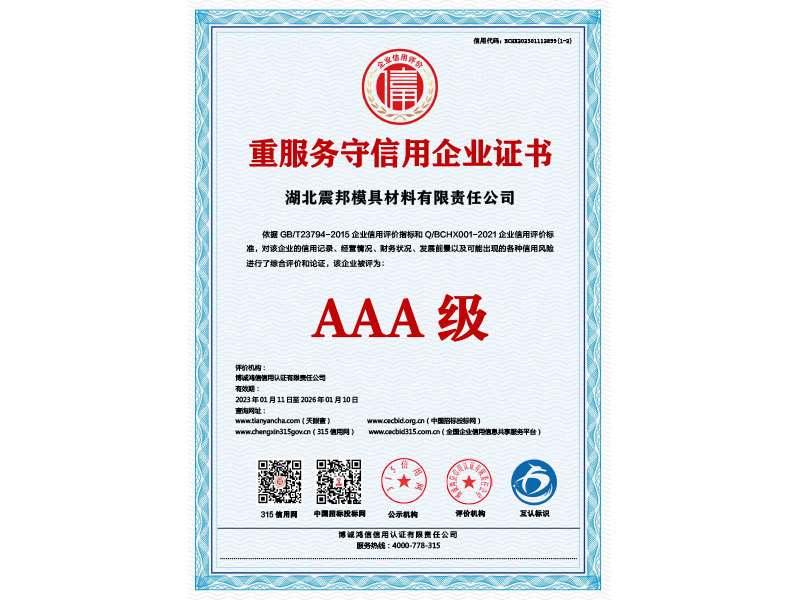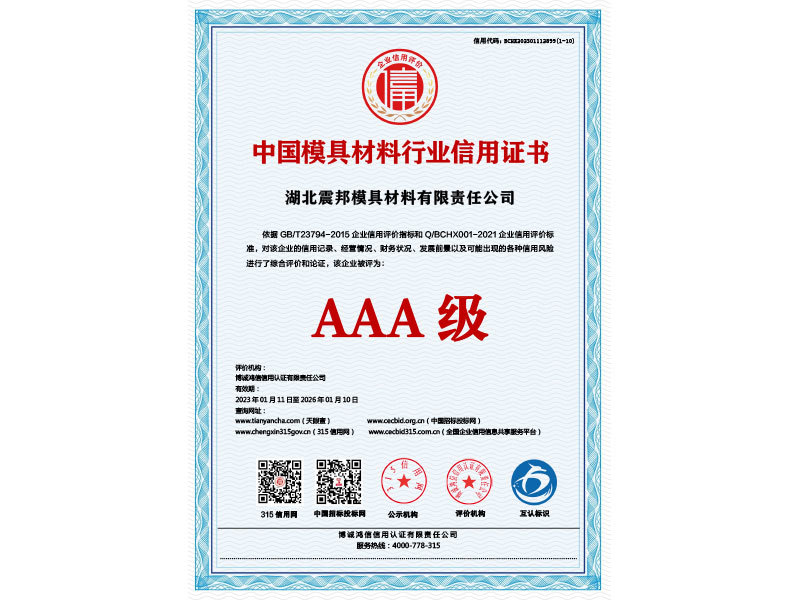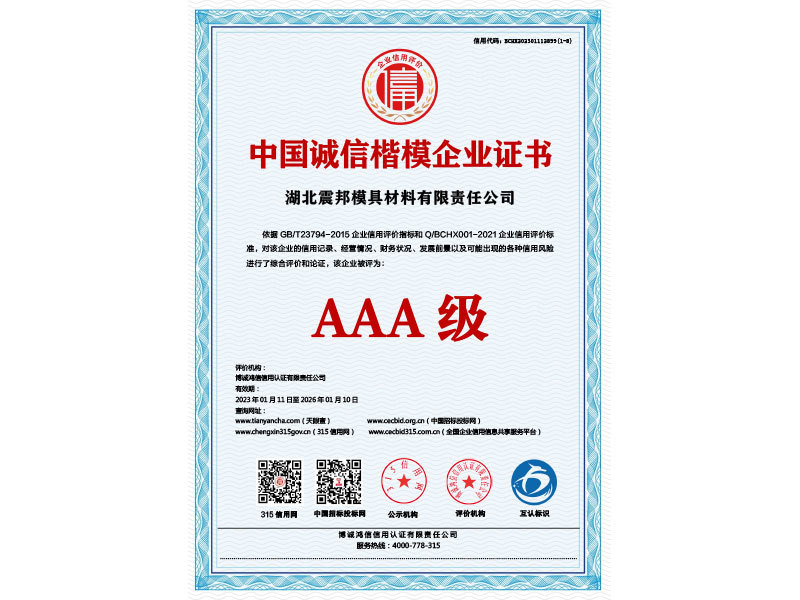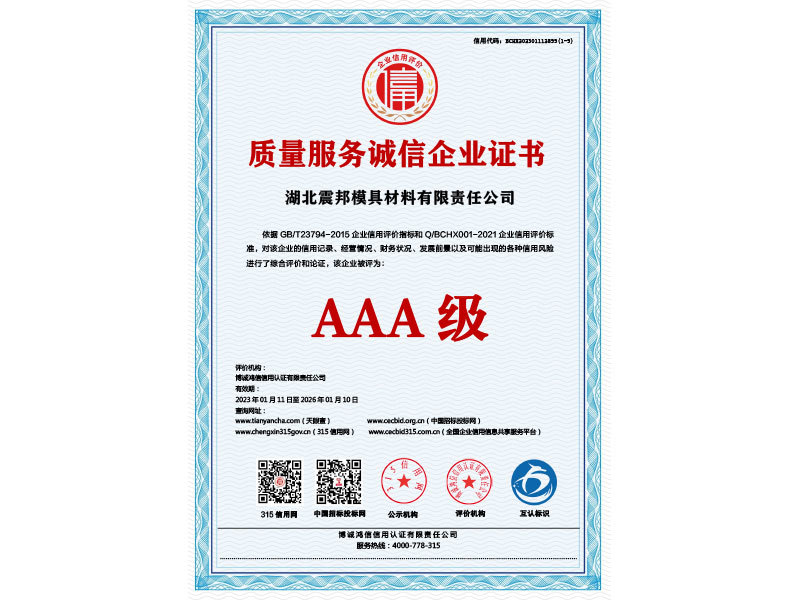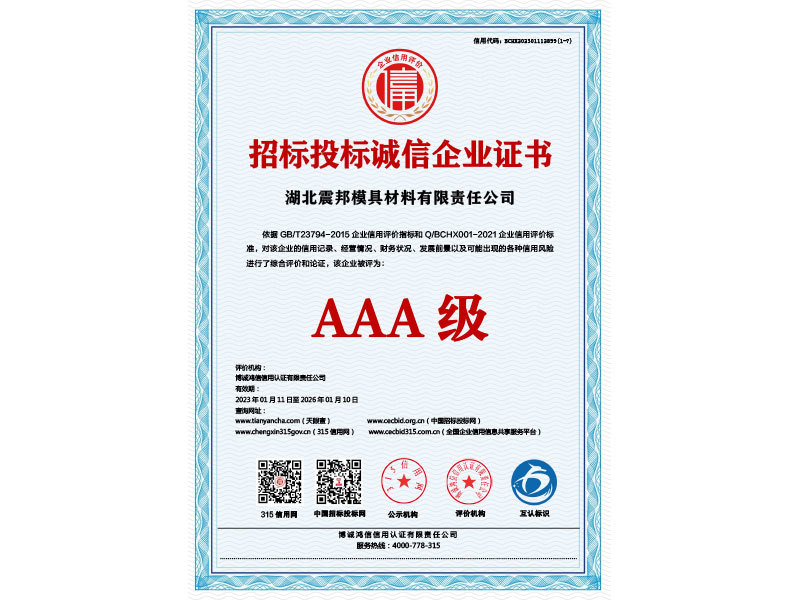5CrNi4Mo(1.2767)
Category:
5CrNi4Mo is an ideal material for large forging dies and complex metal additive parts with the core advantages of "high toughness + high temperature stability + additive manufacturing adaptability".
Contact:
Production Process









Details
Product information
China model :5CrNi4Mo
Germany-1.2767
Product parameter
|
Steel grade(GB)(GB) |
Comparison of Steel Grades by Country | Technical Conditions | Chemical Constituents | ||||||||||||||
|
5CrNi4Mo
|
Germany(1.2767)
|
GB/T 1220-1992
|
C |
Cr |
Mo |
V |
S |
P |
Si |
Mn |
Ni |
W |
Al |
Cu |
Nb |
Co |
B |
|
0.40 ¦ 0.50 |
1.20 ¦ 1.50 |
0.15 ¦ 0.35 |
|
≤0.005 |
≤0.030 |
0.10 ¦ 0.40 |
0.20 ¦ 0.50 |
3.80 ¦ 4.30 |
|
|
|
|
|
|
|||
5CrNi4Mo is an ideal material for large forging dies and complex metal additive parts with the core advantages of "high toughness + high temperature stability + additive manufacturing adaptability".
Smelting method
Mainstream process: electric arc furnace (EF) primary smelting + LF ladle refining + VD vacuum degassing: deep depressurization by LF (S ≤ 0.030%), removal of hydrogen/oxygen gas by VD (O ≤ 20 ppm), improvement of purity.
High-end upgrade process: Electrostatic remelting (ESR) is used in some batches to further reduce inclusions and optimize isotropic (especially for large cross-section modules).
Process characteristics
Additive manufacturing (SLM) process
|
Parameter |
Optimized value |
Impact |
|
Laser line energy density η |
258.3 J/m |
The density is 98.12% and the defects are the least. |
|
Hardness |
689.5 HV₀.₂ |
η=193.8 J/m to the best |
|
Wear rate |
2.3×10⁻⁵ mm³/(N·m) |
Coefficient of friction as low as 0.44 |
Traditional heat treatment process
Quenching: 830 ~ 860 ℃ oil cooling, precooling to 750 ~ 800 ℃ to reduce the risk of cracking.
Tempering: heat preservation at 500 ~ 600 ℃, and the dovetail part shall be separately tempered at 620 ~ 650 ℃ to improve toughness.
Innovative process: Electron beam surface treatment (accelerating voltage 60kV) to increase hardness and reduce roughness。
Purity
Key indicators:
|
Chemical elements |
Limit value |
Testing standards |
|
S |
≤0.030% |
LF |
|
P |
≤0.030% |
|
|
O |
≤20 ppm |
VD |
|
Mixture |
A/B/C≤1.5级 |
ASTM E45 |
NOTE:ESR draft can reduce the the oxygen content is reduced to ≤12 ppm;
Microinstruction
SLM state:
Fine acicular martensite (formed by rapid cooling), Cr/Ni/Mo elements inhibit austenite decomposition and refine the structure.
Quenched and tempered state: Tempered sorbite/bainite matrix + dispersed carbides (e.g. Mo2C), no network carbides.
Grain size: ASTM 8 ~ 10 grade (fine grain to ensure toughness).
Impact work Room
temperature impact energy: ≥ 25 J (conventional heat treatment state).
High temperature properties: at 500 ~ 600 ℃, the hardness remains ≥ 300 HB, and the impact toughness only decreases slightly
Ultrasonic flaw detection
Standard: SEP 1921/ASTM A388;
Level: Ordinary grade: defect ≤ Φ2 mm equivalent;
High quality: defect ≤ Φ1 mm equivalent (used for high-end scenes such as aviation forging die) ;
Ex-Factory status
Annealed state: hardness ≤ 230 HB (polished round/black fur round).
Pr-hardened state: 30 ~ 40 HRC (to be customized by protocol)
Size specification
|
Type |
Size |
Note |
|
Round steel |
Φ20~500 mm × 1~6 m |
smooth round/black fur round |
|
Plate steel |
Thin 20~300 mm ×W 100~1000 mm |
large die forging blank |
|
Square steel |
50×50~300×300 mm |
special precision insert |
Main features
High toughness and impact resistance: Ni/Cr/Mo composite strengthening, excellent toughness stability from room temperature to 600 ℃, resistance to thermal fatigue crack propagation.
High temperature wear resistance:
the hardness at 500 ℃ is ≥ 300 HB, and the wear resistance is superior to H13. Adaptability of additive manufacturing:
the hardness of SLM after forming is up to 689 HV, and the wear rate is as low as 2.3 × 10 3 × 10mm ³/ (N · m), which is suitable for complex structure molds.
Application area
|
Area |
Component item |
performance adaptation |
|
Huge forging steel |
Gear/connecting rod forging steel(>400mm) |
High impact resistance and high temperature stability |
|
Casting steel |
aluminum alloy cylinder body steel core |
Thermal-fatigue and dimension stability |
|
Additive Manufacturing Parts |
Aerospace Special-shaped Structural Parts |
SLM High Density + Complex Forming |
|
Stamping steel |
automobile chassis forging steel frame |
High load support force |
Packing and shipping
Generally, packing and transportation will be arranged according to the customer's requirements, whether to pack and arrange the appropriate mode of transportation, vehicles, such as whether to directly load and transport, whether to pack steel belts, whether to pack and spray marks, etc.


Keywords:
5CrNi4Mo(1.2767)
FAQ
Q How should I choose the right die steel material for my die?
Ans: There are several key factors to consider when selecting a die steel, including: Mold use: injection molding? Die casting? Stamping? Cold work? Hot work? Processing material: plastic type (including glass fiber?) , metal type, yield requirements. Performance requirements: wear resistance, toughness, corrosion resistance, high temperature strength, polishing, dimensional stability. Budget: The price of different material grades varies greatly. Processing conditions: working temperature, stress, cooling mode. Suggestion: Provide as much detail as possible about the application of the die, or contact our technical sales team directly, and we will recommend the most suitable material grade according to your specific needs.
Q Is the die steel provided by you genuine? How to ensure the quality of materials?
Ans: Yes, the die steel we provide is produced and processed independently. We have long-term cooperation with first-line brands at national and abroad to ensure that all materials are genuine. We provide a complete original warranty (material certificate), including key data such as chemical composition and physical properties. We will also carry out strict factory re-inspection of some materials to ensure that the quality meets the standards.
Q The price of die steel fluctuates greatly. What are the main factors affecting the price?
Ans: The price of die steel is mainly affected by the following factors: Raw material cost: market price fluctuation of alloy elements (such as chromium, molybdenum, vanadium, tungsten, etc.). Production process: ESR, VD/VAR and other special processes increase the cost. Grade and brand of material: The price of material with high performance and famous brand is higher. Specifications and sizes: Premium prices may apply for special sizes, large sizes, or small quantities. Market supply and demand: changes in supply and demand in global and regional markets. Processing state: the price of pre-hard state (such as P20, 718, NAK80, etc.) Is higher than that of annealed state. We will provide a transparent and reasonable quotation according to the market situation.
Q What is time for delivery?
Ans: The delivery time depends on: Material inventory status: Common brands and specifications We usually have in stock, can achieve faster delivery (for example: 1-3 working days). Material specification and status: special size, uncommon brand or special treatment (such as pre-hardening, deep processing) may need to be ordered, the cycle is relatively long (for example: 1-6 weeks). Order size: Large orders may require coordinated production scheduling. Please tell us your specific requirements (brand, specification, status, quantity) at the time of inquiry, and we will provide the most accurate delivery information.
Q Can you provide heat treatment or processing services after the purchase of die steel?
Ans: Yes, we provide complementary professional services: Heat treatment: With professional heat treatment equipment (vacuum quenching, cryogenic treatment, tempering, etc.) And strict process control, we can provide customers with precise heat treatment services (according to material brand and hardness requirements). Finish machining: We can provide precision machining services such as milling, grinding (surface grinding, internal and external grinding), wire cutting, EDM, etc. According to customer's drawings. Please provide your specific needs (drawings, technical requirements), and we will evaluate and provide quotations and service programs.
Q The mold cracks and wears too fast during use. What are the possible reasons? Is it related to the material?
Ans: The causes of mold failure are complex and diverse, which may be related to materials, but also involve many links such as design, processing, heat treatment, service conditions, etc.: Material factors: improper selection of materials (performance does not match the working conditions), internal defects of materials (inclusions, segregation), counterfeit and shoddy materials. Heat treatment factors: Improper process leads to poor structure, uneven hardness and excessive residual stress. Design/processing factors: stress concentration, poor surface roughness, too deep tool marks. Usage factors: overload, insufficient lubrication, poor cooling, improper maintenance. Suggestion: In case of failure, please provide detailed information as much as possible (material grade, heat treatment status, photos of failure location, description of working condition). Our technical team can assist you in preliminary analysis to determine whether it is related to the material or provide suggestions for improvement.
Q Do you have a minimum order quantity (MOQ) requirement for your die steel products?
Ans: For the stock of conventional grades and specifications, we usually do not have strict MOQ restrictions, and can be purchased according to the actual needs of customers. For materials requiring special orders (such as unusual grades, special sizes, customized heat treatment/processing), Certain MOQ requirements may be set to ensure the economy of production, usually a minimum of 8 tons. Please consult our sales staff for specific MOQ before placing an order.
Q In addition to standard grades, can you offer special die steels with custom compositions?
Ans: We mainly deal in standard grades of die steel, which are widely proven to meet the needs of most applications. For the development of customized alloys with special performance requirements, this usually involves a large amount of R & D investment and production coordination, which is costly and takes a long time. We recommend that priority be given to the material closest to the demand from among the existing mature grades, or to meet special requirements by optimizing the heat treatment and surface treatment. If there is a need for customization, please specify the technical requirements and we will evaluate the feasibility.
Other Related Products
Qualifications
Production equipment

Gantry Milling Machine

Lathe

Sawing Machine

3000-Ton Stamping Presses

Annealing Furnace

Laboratory Hydrogen Oxygen Nitrogen Gas Analyzer

Forge Hammer

Vacuum Degassing Furnace

Steelmaking Workshop Production

Steelmaking Production Operations

Production of Steel Ladles

Producing Electric Arc Furnace

Steel Production

Refined Furnace Exterior Photo

Refining Furnace Operating Room
Leave a message

Address: No. 128, Zhang Zhihe Avenue, Dapaishan Village, Xisaishan District, Huangshi City, Hubei Province


